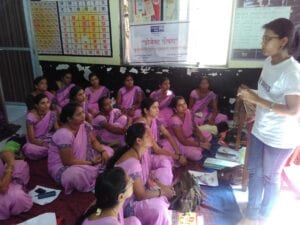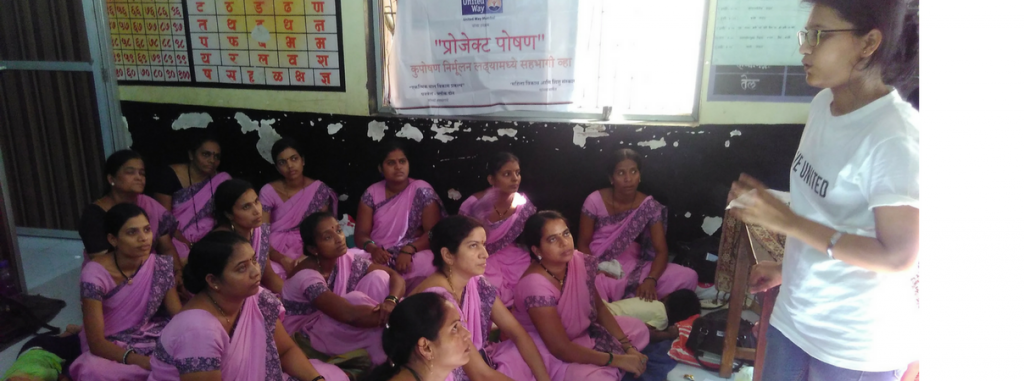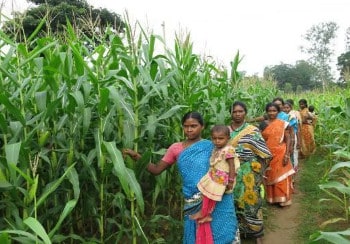4 min read
Summary Points:
- Kellogg’s is committed to contributing to the United Nations Sustainable Development Goal #2 to achieve zero hunger.
- Effective partnerships are critical to delivering measurable, tangible contributions that address hunger.
- The challenge now is to find a different way to create a replicable, scalable movement that addresses child hunger with big, widespread impact and builds empowered communities.
- Kellogg’s is hosting a workshop with two sessions and a lunch at the AVPN Conference. The sessions are Overcoming the Challenges of Hunger and Food Security across Asia and Innovative Partnerships to Address Hunger Solutions. The networking lunch will focus on sustainable agriculture and supply chain.
The time for change is now
According to the Food and Agricultural Organization of the United Nations (FAO), the Asia Pacific region still has 490 million hungry people in their midst, more than any other region.
Furthermore, in spite of the importance of childhood nutrition and significant progress in the last 25 years, global childhood hunger is still widespread. Every year, 3.1 million children die (8,500 children per day) due to poor nutrition globally[1]. In the developing world alone, 66 million children of primary school age go to school hungry[2]. Research shows, insecurity in childhood can limit a child’s cognitive and socio-emotional development, and therefore long-term productivity and economic potential[3].
At Kellogg’s we are looking to tackle this lingering presence of hunger in line with goal #2 of the UN SDG’s through our “Breakfasts for Better Days” program. The agenda is bold, including not only donating 2.5 billion servings of food to people in need and expanding breakfast programs to reach 2 million children, but also working to improve the livelihoods of farming families and communities, including those who grow our ingredients through sustainable agriculture and reducing post-harvest food loss and reduce hunger. We are increasing productivity and resiliency of 500,000 farmers by advancing practices that help them produce more using fewer resources and leveraging our own supply chain to include 15,000 smallholder farmers (especially women) to boost yields and income.
The issue of hunger is a big one
One lesson we have learned through our programs is the importance of partnerships and collaboration in driving lasting change towards ensuring that no child starts the day hungry.
In a recent joint study with United Way Mumbai, Kellogg’s supported Project Poshan (nutrition) for 750 school children in Panvel Block II, Raigad District, Maharashtra in 2017. A comprehensive intervention was set up to establish partnerships with the Government of India and its Integrated Child Development Scheme, which provides nutrition and health to children below 6 years of age, pregnant women and lactating mothers. The study distributed a locally sourced nutritious meal with a nutrition supplement on daily basis for five months. The program included growth monitoring and medical referrals, support for parents to ensure treatment compliance, training of Anganwadi workers, and parent counselling of undernourished children.

Results showed that among 750 children, 727 showed positive weight gain while remaining 23 maintained status quo due to reasons like illness episodes, vacation and travel. The results reveal a morning meal improves children’s nutrition for better growth and health outcomes. Studies and programs like the one with United Way Mumbai show that through improving nutrition we can have a positive impact on children’s health and their future.
It starts locally, with farmers and in schools
Another learning is that we need to go beyond meal donations and focus on building sustainability for the future. To do this, we are working with local farmers to create sustainable agricultural practices through educating and providing support for building resilience and increased climate-smart agriculture.
In 2015 Kellogg’s has partnered with CARE in India, to empower women smallholder farmers and increase their productivity, income and nutritional status by helping them build a strong and sustainable value chain. Over 5,600 farmers have been impacted through the program, with corn productivity improving (+19%) and average household income improving by 103%.
Also in 2015, Kellogg’s and TechnoServe – an enterprise offering hands-on training in wheat, maize, and soy – launched a climate-smart agriculture program to provide smallholder farmers in Madhya Pradesh, India with improve productivity, income and resiliency.[4] To date, the project has reached as many as 9,000 maize, wheat and soybean farmers, 30 percent of whom are women with income increasing by 25% per acre.
Examples like this help to highlight the power of improving efficiency in the use of resources, which is critical to sustainable agriculture. This not only directly improves rural livelihoods but also helps ensure the future of critical agriculture systems as we race to nourish growing populations.
Why collaboration is important
Through all of our work at Kellogg’s we have experienced the power of partnerships – corporate, philanthropic, research and government. Effective partnerships help to direct financial and non-financial resources to deliver measurable, tangible contributions that address hunger, and focus on getting breakfast to more people, and ensuring no child should go to school hungry.
A recent partnership in Singapore with charity organisations has seen a 12 month program provide 100,000 serves of cereal to families in need. We find that working with local partners ensure resources are distributed to people who need it most and can provide greater insight into the issues and solutions that impact that particular area. These partnerships prove that collaboration and joint action is critical to success.
Action to solve morning hunger in Asia Pacific
We have learnt an incredible amount through our amazing, locally focused programs that deliver brilliant outcomes in the areas where they operate.
However, for us, and organisations committed to changing children’s lives, the challenge now is to find a different way to create a replicable, scalable movement that addresses child hunger with big, widespread impact.
We want to build empowered communities who see for themselves the benefits of a morning meal and how it can change their children’s current state and potential by providing adequate nutrition and enabling better education outcomes.
At the upcoming AVPN conference, Kellogg’s is hosting a workshop with two sessions and networking lunch – to delve deeper into the issues facing the morning hunger problem and unlock new and innovative ways to find solutions for sustainable farming, morning hunger and breakfast programs for children. The lunch will focus on sustainable agriculture and supply chain. Kellogg’s is inspired to do more and go bigger.
We invite you to join us, where we’re bringing together leaders from organisations, governments and philanthropists, to discuss the issues and challenges, and work out new and innovative ways to create sustainable and scalable impact to solve morning hunger.
Further Links: Kellogg Breakfast for Better Days
[1] https://borgenproject.org/effects-of-hunger-on-education/
[2] https://blogs.unicef.org/evidence-for-action/food-thought-measuring-child-food-insecurity/
[3] https://www.ncbi.nlm.nih.gov/labs/articles/27184287/
[4] Work supported by the Kellogg Company 25 Year Employees’ Fund





















